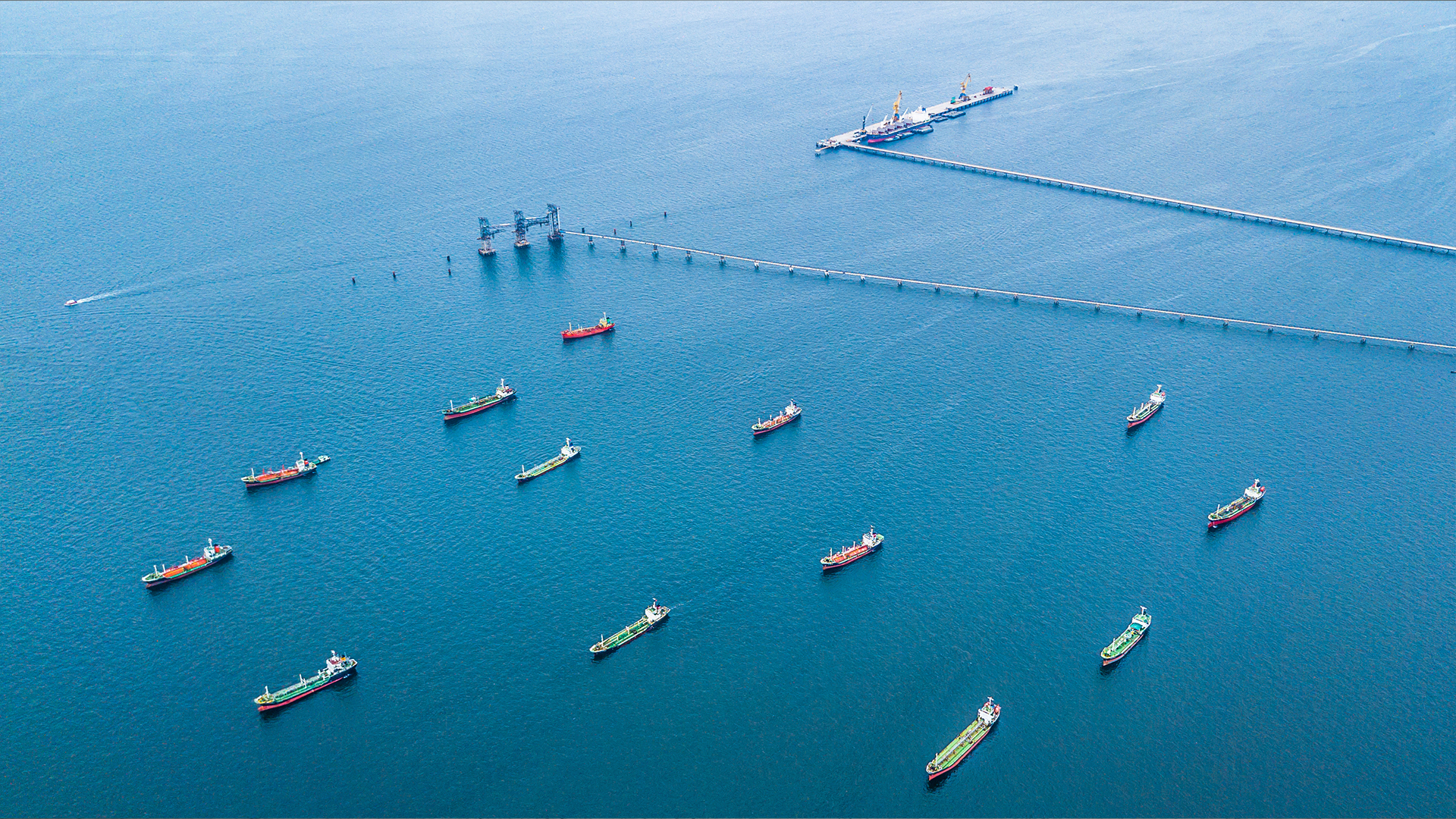What is the EU ETS?
The EU ETS was the first emissions trading system in the world when it was established in 2005 and remains the largest greenhouse gas emissions trading system across multiple countries and multiple sectors. It operates as a cap and trade system: a maximum number of allowances are available in the scheme and these reduce over time making the cost of allowances increase and thereby encouraging the use of measures to reduce the emissions.. These allowances are then allocated to participants either via free allowances or auctions, where participants purchase allowances. A participant must ensure that it has sufficient allowances to cover its particular emissions: if it does not then it needs to address reducing its emissions to fall within its allocated allowances or it will need to purchase further allowances which are traded on a secondary market.
Not all industries have free allowances. For example, in the power sector, there are generally not any free allowances available, but in aviation, to assist the transition to a low carbon economy, the industry receives the majority of its allowances for free. There will not be any free allowances for the shipping industry, but instead the scheme will be introduced incrementally so that, for instance, in the first year, an owner will only have to surrender allowances for 40% of its emissions – the remaining 60% can be seen as a “free allowance” for that year.
The scope of the Directive
The key provisions of the Directive are:
- Initially, only vessels over 5,000 GT which call at EU ports will be subject to the EU ETS. From January 2025, vessels between 400 GT and 5,000 GT and offshore ships over 5,000 GT which call at EU ports will become subject to the scheme.
- The industry will become incrementally subject to the EU ETS, with shipping companies being required to surrender allowances equivalent to the following amounts:
- 40% of verified emissions reported for 2024;
- 70% of verified emissions reported for 2025;
- 100% of verified emissions reported for 2026 and each year thereafter.
The scope of emissions caught by the scheme will expand gradually between 2024 and 2026 to cover emissions of nitrous oxides and methane.
- 100% of emissions from intra-EU voyages will be used in the calculation of verified emissions as well as 50% of emissions from voyages which start or end outside of the EU.
- By 31 December 2023, the EU Commission will adopt implementing acts aimed at addressing evasive measures which might be taken to circumvent the Directive through transhipment at neighbouring ports outside of the EU.
- The EU ETS will apply to ships calling at EU ports, regardless of the flag that they fly, or where the owner of that ship is incorporated.
- There will be a ‘shipping company’ (the Shipping Company) for each vessel which calls at an EU port and so is subject to the EU ETS which will be responsible for monitoring and reporting on emissions data and for surrendering allowances. The proposals envisage that the shipping company for the purposes of the legislation will be the holder of the Document of Compliance (DOC). This shadows the MRV requirements which requires the DOC holder to submit the required emissions data.
- If the Shipping Company responsible for a vessel is incorporated in an EU Member State, then that Member State will be responsible for administering the EU ETS scheme for that entity. If a Shipping Company is a non-EU company, then the Member State with the greatest estimated number of port calls from voyages performed by that Shipping Company in the last four monitoring years or, if this is not applicable, the first Member State the vessel arrived at or started its first voyage from, will be responsible for administering the scheme for that Shipping Company. The Commission will produce a list of which Member States will be responsible for which Shipping Companies and this will be updated periodically.
- Penalties for non-compliance with the EU ETS, will be introduced. If a Shipping Company does not surrender the requisite allowances when due then an excess emissions penalty, which is EUR 100 for each tonne of CO2 equivalent emitted that has not been surrendered, will be incurred. Where a shipping company fails to surrender allowances for two or more consecutive reporting periods, an expulsion order can be issued against ships for which it is responsible. An expulsion order can lead to ships being detained by the Member State the ship is flagged in and denied entry into a port under the jurisdiction of a Member State (other than the flag state).
Considerations for the shipping industry
If shipowners and operators have vessels which trade to and from or within Europe, then the inclusion of shipping within the EU ETS will have an impact on them. There are a number of issues which will need to be considered if a vessel will be subject to the EU ETS.
One key question is which Member State will be administering the scheme for a particular vessel. This is a straightforward question where the Shipping Company is incorporated in a particular EU Member State, but becomes more complicated when the Shipping Company is incorporated in a jurisdiction outside the EU as then the historic port call data needs to be examined. The question is also important for companies which operate vessels from more than one EU jurisdiction. Whilst it is helpful to shipowners and operators that the EU will be issuing a list of which Member States are responsible for which Shipping Companies, this will not be available until early 2024 and some entities will want to have visibility on this issue as soon as possible.
A shipowner will also need to consider the identity of the holder of a vessel’s DOC carefully: does dealing with the Member State that the DOC holder is allocated to present any logistical issues for the owner? For instance, DOC holders are often technical management companies which are ill-suited to dealing with the business or buying and surrendering allowances. Also, if the holder of a DOC is a ship manager that also performs this function for a number of other vessels owned by different owners, then that manager will be taking on responsibility for surrendering many millions of Euros of allowances. Ship management companies will have to consider carefully how this is dealt with and the regulatory and tax implications that this development may have. Furthermore is there any risk that one shipowner’s vessel could be affected by an expulsion order that has been put in place in connection with a failure to surrender allowances for another vessel owned by a different shipowner but managed by the same ship manager?
Vessel emissions are going to have increasing significance in chartering arrangements, both from an operational and commercial perspective as a result of the extension of the EU ETS. The collection and exchange of data between shipowners and charterers to enable the compliance with the obligations imposed by the EU ETS will need to be addressed in chartering arrangements. There will also need to be an allocation of responsibility for bearing the costs of compliance with the EU ETS, particularly in relation to the purchase of allowances under the scheme.
The covering notes to the Directive recognise that decisions which can impact on emissions, such as fuel types and the route and speed of a ship, may be taken by an entity different to the Shipping Company and so suggest that Member States should implement measures in national law so that the costs are passed through to the decision maker as the economic user of the vessel: the ‘polluter pays’ principle. In the absence of such measures at the moment, shipowners and charterers should consider dealing with the allocation of these costs contractually: BIMCO has already produced an ‘ETS- Emissions Trading Scheme Allowances Clause for Time Charterparties’ which highlights the need for parties to consider these issue carefully. Whoever is responsible for the costs of compliance with the EU ETS will need to contemplate whether these costs will be passed along their supply chains to their customers and if so, how this will be factored into their commercial operations? There are also practical issues to consider: if there are disputes about operational decisions which impact a vessel’s emissions, how will these be resolved? How will a Shipping Company ensure that the cost of allowances are covered if the fixture ends long before the date for surrender of allowances?
Many will see the introduction of the EU ETS as an opportunity, whether that is through secondary trading of allowances or entities using the introduction of the scheme as the impetus to accelerate their decarbonisation aims and reap the benefits of purchasing fewer allowances. However, the burden the scheme will impose: both from a cost perspective and also in terms of administering the scheme and the issues that it raises in a commercial context, cannot be ignored. Review of the regulations, understanding the commercial perspectives and careful drafting of charterparty clauses will be required. Co-operation between commercial parties, including shipowners and charterers will be necessary and, particularly where parties are adapting to understand and comply with the administration of the EU ETS, this may not be straight-forward.





